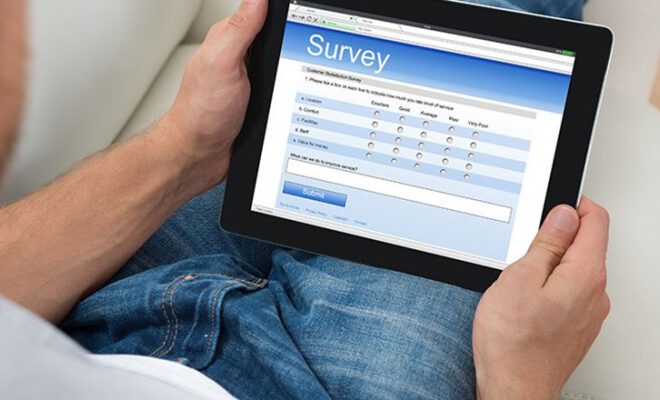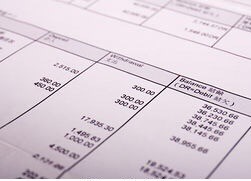Important factors to consider while starting your own Business

There are a lot of positive points to be said for starting a business; it can give you more freedom, more control, and potentially more money than working for someone else. Plus, you will be able to do a job you are truly passionate about, making your working hours more interesting than they might be in another kind of job.
However, it should also be said that there are downsides to starting a business. You will be very busy at first (and possibly for a long time to come); for example, you may need to work long hours to get everything done, and it can be a while before you see any kind of profit. This is why it’s so important to think carefully about why you want to start a business and ensure that you are aware of both the pros and the cons before you make any kind of monetary or time commitment. Read on to discover what you should be thinking about before you start a business.
Important factors to consider while starting your own Business
Research Your Market
Before you go all out and spend money on starting a business, it’s a good idea to know that your business is, in fact, viable. If it isn’t, it’s better to know this at the start rather than discovering it only when you realize no one is buying from you. Market research will help you with this. You’ll need to speak to people, conduct surveys, and do your own research in order to determine whether or not your business is going to be successful. In other words, is anyone interested in what you intend to sell? It might seem like a fabulous idea to you, but if the wider world doesn’t agree, your business will fail.
As well as conducting this kind of market research right at the start, there is more to be done in this regard. You will also need to know who is most likely to buy from you; who is your target market? Until you determine this, it will be impossible to create a working marketing campaign, for example, and you won’t know how to design your website, or even what price point to put on your goods and services.
As you can see, conducting well-thought-out and thorough market research is crucial. The results might not be what you want, but it’s better to know this in advance rather than when you’re much further along in the process of starting a business.
Consider Your Location
Not all businesses need a physical office or storefront, and many can be run from home. However, although this is possible, it’s not a set-up that everyone wants; they prefer to have an office away from their home. If you are meeting with people face to face, and specifically if you have a shop or a restaurant, then this is certainly a factor that you need to take into account.
It’s best to decide where you want your business to be right from the start. To begin with, this will have an impact on your costings and therefore your profit; it will cost you more to have an external office compared to working from home, for example. However, if you ensure you have accounted for these costs in any business plan you create, and if you are sure that by having an outside office this will bring you more business, then it’s certainly a commodity that you will want to include in your plans.
If you are going to open a store or café or similar enterprise, then the physical location is another crucial consideration. You’ll need to ensure you get adequate footfall if you will be relying on walk-ins; and if you are an appointment-only business, you must make sure you are close to good parking, roadways, and public transport links. Cost is always going to be a factor, but if you choose the wrong location, you could jeopardize your business before it even has a chance of becoming a success.
Factor In Start-Up Costs
In some cases, you can start a business with hardly any money at all—perhaps you intend to be a consultant and already know some people who want to use your services, for example. If this is the case, you won’t need to do any marketing right away and you won’t need any tools or equipment. However, in the majority of cases, some form of marketing—and some equipment—is going to be needed, which is why start-up costs have to be a big consideration for anyone thinking of starting a business.
Make sure you don’t rush your budget-setting. Do plenty of research and speak to others who have already started businesses. Find out what costs they had to account for, and see if there was anything that surprised them. If you know in advance, you can ensure you have the funds for these unexpected payments.
If the costs of starting your business are prohibitive and you are unable to borrow money, then don’t give up. Assuming your market research told you your ideas was a good one, look for investors who might be interested, or start saving your own money as much as you can. If you start a new business while you are still working in a full-time job, you’ll be exceptionally busy, but you will also have a little more leeway when it comes to your costs. Even if it’s not the way you imagined it, this could be the best alternative when your budget is tight.
Write A Business Plan
Your business plan is probably the single most important document you are going to produce, at least at the very start of your entrepreneurial journey. Even having one spreadsheet that details your projected income and outgoings over the course of the next five years is better than nothing, but ideally you will want a fully fleshed out business plan. It will take you some time to get this right, and it will take a lot of work, but it is worth it when it is done.
Your business plan will help to show investors and lenders how your business will function and prove to them that you will be able to pay them back. It will also enable you to work towards your goals more easily, especially when they are broken down into manageable pieces and written in order of priority in your business plan.
Remember that your business plan needs to be flexible; sometimes circumstances change and you’ll need to think of new ways of working or change your goals to match what is happening. However, if you can stick to it as much of the time as possible, then you will find that you can reach your goals in a more focused way, and you’ll be able to make better decisions in your business since you’ll have guidance in the form of your business plan.
Discuss Your Ideas
When you are focused on and invested in a project such as starting a new business, it’s easy to get carried away and not see any potential problems looming up ahead. It’s also very difficult to be fully objective when it comes to determining if your ideas are good ones and are working. This is why it’s a wise ideal to discuss your business plans with someone you trust. Note that this should be a trustworthy person: if you are concerned that your idea might be stolen, it’s best to speak with people you are sure won’t start working on their own version of what you are doing. Only discuss your plans with those who will help you, not make the process harder.
The great part about talking to someone about your ideas for your business is that you will get an entirely objective outside view. Make sure the person in question knows that you want their honest answer, even if it seems negative, because otherwise someone might try to be kind when, as pleasant as that is, it’s not going to be helpful. You need complete honesty when it comes to any form of feedback about your plans.
It might be that the person you are talking to suggests an idea that seems completely ridiculous and that you don’t want to consider, but don’t dismiss anything outright. They might, for example, suggest you look into gaining additional qualifications and discovering what is masters in public policy as they feel this degree would benefit you. Rather than saying no, see if this might actually work—it could be exactly what your business needs.
Start Small
It is highly unlikely that you will launch your business one day and become a millionaire entrepreneur the next. It takes time to grow a business, and it takes a lot of hard work to make it sustainable and successful. With that in mind, it’s best to start small and grow bit by bit than try to start big and have nothing to show for it because you burned out and the business failed.
Although it will take much longer if you start small and work your way up to becoming a much bigger business, it will also ensure that your business is reliable and works well, giving you the results you are looking for.
Even if you don’t grow and remain as small business, that shouldn’t be a problem. Sometimes this is what happens, particularly when you are working in a specific niche. Aim to be the best in that niche, and even if you are still small, you will be a success.
Get Professional Accounting Advice
You might think you can save yourself a reasonable amount of money by doing your taxes by yourself, but the truth is that this often a false economy. Although you might not have to pay out for a specialist accountant to help you, you might find that, because you’re not an expert in this field, you end up paying more in tax than you need to.
This advice basically goes for most specialist areas of business. Although outsourcing will cost you initially, the money it can save you in time and effort and fewer mistakes means it is a wise investment.
Tax in particular can be highly confusing and unless your budget is very tight, paying an accountant is should be added to your list of expenses from the very start.
Be Prepared For Hard Work
Many people who start businesses do so because they feel it is an easy way to make money. Although running your own business can certainly bring you money, and although it will become easier over time, the fact is that at the start, it is hard work and there won’t be much profit to show for it. Any profit you do make should be invested back into the business, meaning you might not even get paid initially, and you’ll still need to work as many hours as you can to get the business up and running. This can come as a shock to those who thought being a business owner would be easier than working for someone else, and it’s one of the reasons why so many new small businesses don’t make it past the one-year mark.
If you want to make your business a success, you need to be prepared for a lot of hard work. You need to schedule time every day to work on your business, whether you’re doing it full time or as a side hustle while it grows. Every time you take a day off (when it’s not genuinely needed—taking breaks is also important) you risk your business and all the work you have put into it so far. A new business is a very fragile concept, so you need to keep nurturing it and caring for it to ensure it grows into a healthy company.
Should You Buy A Franchise?
The question of whether or not you should buy a franchise when you want to start a business is a good one. There are some excellent franchise opportunities that will give you a good return on your investment and continue to provide you with a living until you are ready to sell or try another venture. However, equally there are some terrible franchises which cost a lot more than you would initially think and won’t be a long-term sustainable career for you. This is why you need to carry out a good level of research into whether or not the franchise you are particularly interested in is going to be good for you in the end.
Remember, although the beauty of a franchise is that you will already have a business that’s up and running and—if you pick well—one that is well known, you will still need to market it and it might be some time before any money comes from it. In this regard it’s much like starting any business, although with potentially less freedom and more support; so you need to decide what is most important to you.














Covid-19 UAE: 10-Day Quarantine Mandatory in Dubai for Close Contacts
Export Shipping Documents Checklist to complete your First Trade